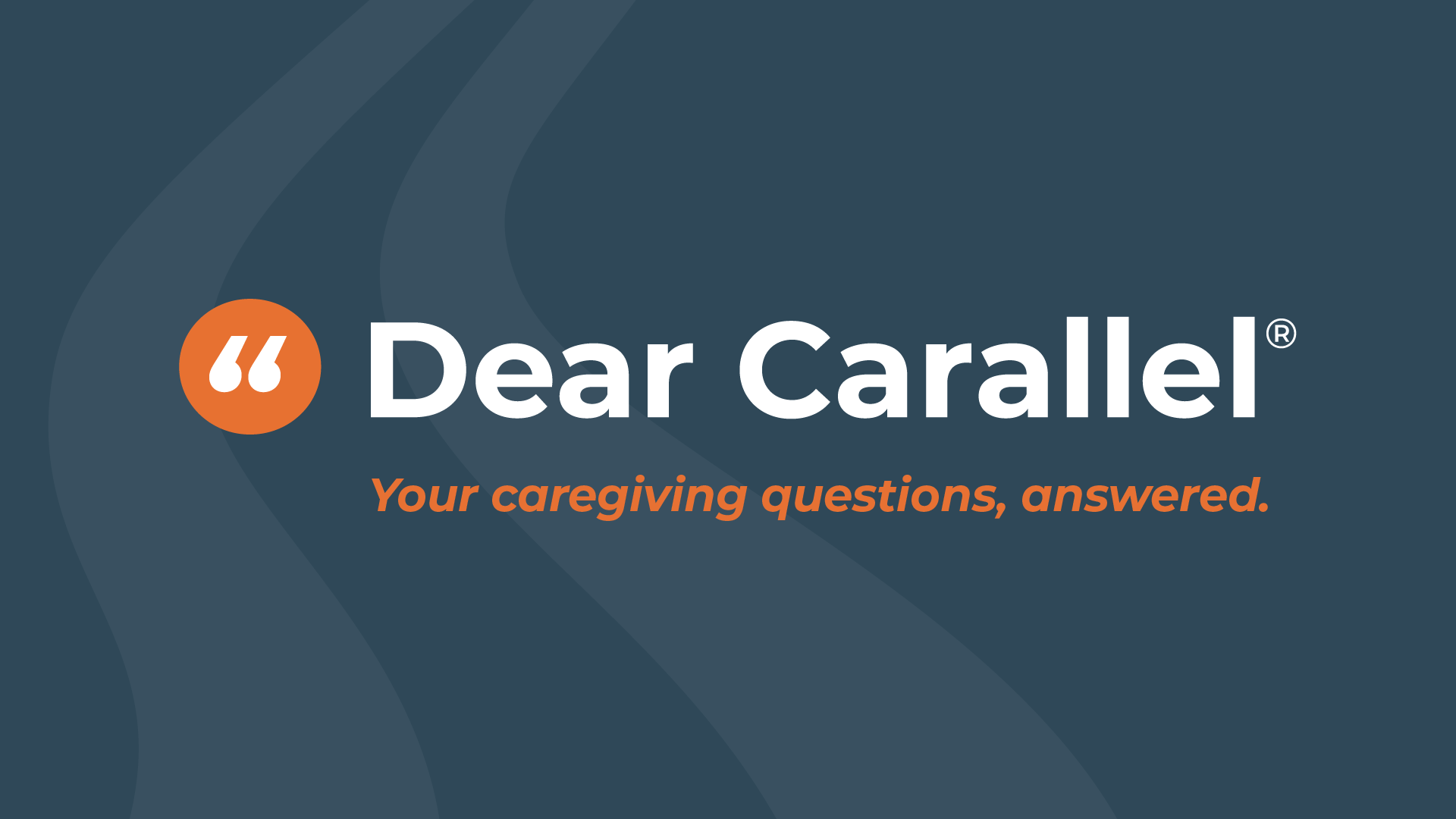Caregiver Question | 04/18/24
He refuses help that he clearly needs. What do I do?!?

DEAR CARALLEL: My partner has some dementia. I began noticing changes in his behavior a few years ago and we eventually got the diagnosis of frontotemporal dementia about 18 months ago.
While I am afraid of what is to come, I’m angry now because he refuses my help. And he needs help with everything!
Getting ready for the day, getting ready for bed, eating a meal, and pretty much everything in between except walking. I’m happy to be there for him but I’m not happy when he doesn’t let me be. When I try to help, he refuses, and we end up in an argument. It’s driving me crazy!
Not to mention that it’s hurtful, you know? What can I do to get him to stop refusing? –Alton in Kingman, AZ
DEAR ALTON: Thank you for your question. I feel for you.
You are not alone in having this frustration. We talk to many caregivers on our support line who face this as well.
There isn’t a singular or easy answer but there are adjustments we can make as caregivers that help in these situations. They mostly have to do with our own mindset, how we approach our loved ones, and the words we choose to use in doing so.
And while every caregiving situation is unique, these tips are universally applicable in my opinion. Here they are.
Revise Expectations
When caring for a loved one living with any form of dementia, we’re not setting ourselves up for success if we don’t change our expectations along with the progression of their condition.
It can be helpful to remind ourselves of what is actually happening to our loved one when they’re living with dementia. Their brain is changed. They’ve actually lost, or are in the process of losing, the skills necessary to complete the tasks that they now need help with.
These brain changes can also make it difficult for our loved ones to actually accept the help when it’s offered.
Remembering this as we interact with our loved ones can help us be aware of our body language and tone while we’re trying to help them.
Stop Projecting
When we’re in the midst of caregiving, the line between our needs and those of our loved one can easily become blurred.
So if we’re trying to get our person ready for the day for example, we want to do it quickly and move on to all the other things we have on our plate. Of course we do.
But those are our needs. What does our loved one need and/or want at that moment?
Having this question front and center in our minds can help us ensure we’re not projecting our needs onto our loved ones in the moments when we’re trying to help.
Listen and Validate Feelings
To many, accepting help can equate to a loss of independence. And that is painful.
Related to the tip on projecting above, if we can subtly shift our approach of offering help with a specific task into this order of priority, it can pay meaningful dividends.
1. Listen to them
2. Validate their feelings
3. Get to the task at hand
Collaborate, Don’t Mandate
It can be easy to fall into the habit of mandating. As caregivers, we have a million things to do and it’s natural to want to be quick about it. But that’s not necessarily realistic.
A slight tweak to the words we choose and use can change the entire dynamic when we need to complete a task with our loved one.
Mandating would sound something like this: Good morning, it’s time to get out of bed. Here are your clothes for today. Rise and shine!
While collaborating might sound something like this: Good morning. Are you ready to get up for the day? What do you want to wear? Here are the options….
It’s a small change that can have a big impact because one is telling them what to do (i.e. mandate) and the other is making them part of the process (i.e. collaborate) and providing choice. Big difference!
✨
Like I said at the beginning, there is no single answer but the sum of these parts should help if you’re able to put them into practice over time.
Wishing you and your partner the best, Alton!
–Jennifer, Carallel Care Advocate
The latest from Carallel

Caregiver Journey Webinar
A Caregiver Conversation by Carallel: Helping Children Adjust When a Loved One Moves In
We dive into the practical realities of moving the person you're caring for into your home - and offer simple tips for helping children adjust....

Blog
The ‘Invisible Second Patient’: Understanding the Role of Dementia Caregivers
There are 16 million Americans caring for a loved one with Alzheimer’s disease or a related dementia today. Despite the group’s sheer size, they...
